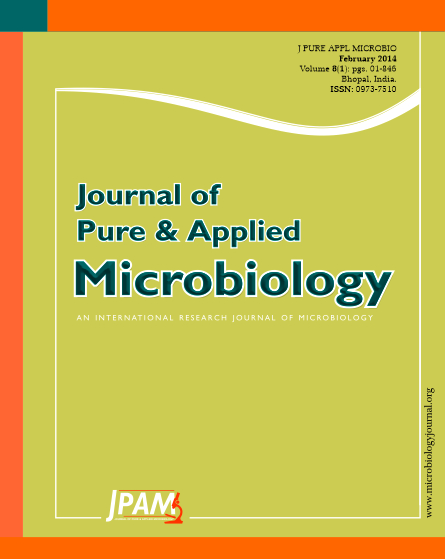Penicillium isolates were isolated from leather industry effluents and screened for alkaline protease enzyme production. This study reports the production of alkaline protease by Penicillium isolates using agricultural wastes in a chemically defined basal medium under solid-state fermentation. A comparative study was carried out on the production of alkaline protease using rice ban, wheat bran as substrates in solid state fermentation by Penicillium isolates. Among the tested substrates wheat bran produced the highest activity as 3.9 U/ml/min while rice bran produced alkaline protease as 3.1 U/ml/min by Penicillium isolate-2 under solid state fermentation. The cultural conditions were optimized for higher yield of alkaline protease enzyme. Extracellular alkaline protease was purified from Penicillium isolate in a two-step procedure involving ammonium sulphate precipitation and Sephadex G-100 column chromatography. The molecular mass of the enzyme was determined to be 30kDa by SDS-PAGE. The utilization of agro industrial waste not only fulfills the requirement as a substrate for the production of several value added products, but also reduce the pollution.
Penicillium, Alkaline protease, Tannery waste, Solid state fermentation, Optimization and Purification
© The Author(s) 2014. Open Access. This article is distributed under the terms of the Creative Commons Attribution 4.0 International License which permits unrestricted use, sharing, distribution, and reproduction in any medium, provided you give appropriate credit to the original author(s) and the source, provide a link to the Creative Commons license, and indicate if changes were made.


